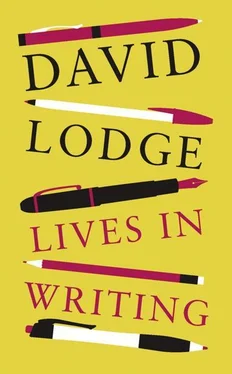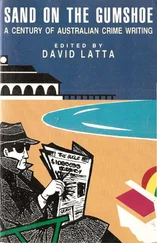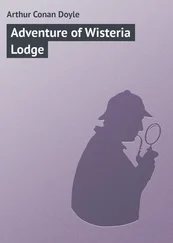Because the archive of the Fabian Nursery held at the London School of Economics doesn’t begin until 1910 it is impossible to verify that they held a dance on 20 March 1908, but Patricia Pugh’s history of the Fabian Society, Educate, Agitate, Organize , confirmed that the Nursery did indeed organise dances in their early years, which was good enough for me. I felt free to place the Paddington episode in the early summer of 1907, a much more plausible date for several other reasons. Rosamund’s letter to Jane nearly a year later has exactly the wistful tone of someone who would like to heal a breach with a former friend, regretting the missed opportunity ‘of talking to you a little bit’.
Of course I could have ignored Julia Briggs’s dating of the Paddington incident when I first encountered it, and placed it earlier in time — very few readers would have challenged me. But that would have been to break the rule I set myself: to respect the known facts. When the different documentary sources I consulted gave conflicting versions of the same event I favoured the one that seemed most plausible to me as a novelist. In the Postscript to his autobiography, Wells describes his third visit to Russia, undertaken primarily to interview Stalin, in 1934. He asked Moura, who had lived independently in Europe since she parted company with Gorky in 1928, but was now in a steady relationship with H.G., to accompany him. She refused, saying she dared not return to Russia for fear of being arrested, and that she had to visit her children in Estonia, where they arranged to meet on his return journey. He took his son Gip with him to Russia as companion instead of her. Visiting Gorky in his dacha outside Moscow Wells was stunned to discover that Moura, unknown to him and contrary to her own accounts of her movements, had stayed with Gorky three times in the past year, most recently only a week before his own visit. Wells felt betrayed and described vividly how he was plunged into paroxysms of jealous rage. He set off alone for Tallinn, Estonia, determined to confront Moura with her deception.
In H.G.Wells: Aspects of a Life Anthony West asserts, naming Gip as his source, that Wells and his son deduced between them that Moura must be a spy working for Russian intelligence, that she had been planted on him at the very beginning of their relationship in 1920 and had been reporting on him ever since. According to this account, when Wells accused Moura of this in Tallinn she admitted it, but told him that it was the only way she survived the revolution and that ‘as a biologist he had to know that survival was the first law of life’. In Anthony West’s opinion, although Wells patched up their relationship he never recovered from the disillusionment, and it was the underlying reason for the misanthropy of his last years.
West’s version of the episode was repeated by John Gray in his book, The Immortalisation Commission , which was published not long before A Man of Parts, and serialised in the Guardian Review (8 January 2011). Without Gray’s end-note reference in his book, readers of that piece would have assumed that it came from Wells’s Postscript, mentioned by Gray. It does not. Wells gives a very detailed account there of his showdown with Moura in Tallinn — it is the only dialogue scene in my novel hardly a word of which I had to invent — and at no point in it, or anywhere else, does he accuse Moura of being a spy, only of being ‘a liar and cheat’. Anthony West’s book is a mine of information but he is not always reliable, and in this instance I have followed Wells’s account. If Anthony’s version were true, why would Wells give a false one in a work to be published after he and Moura were dead? I find it hard to believe — and I would have found it hard to render in my novel — that he received Moura’s frank admission in 1934 that she was a Russian spy who had all along exploited him out of self-interested motives, but that nevertheless he soon resumed a sexual relationship with her, begged her to marry him, and maintained that she was one of the few women he truly loved. Also her daughter Tania recalled in her memoir, A Little of All These , that Moura asked her in June 1936 to tell H.G. that she had been taken ill in Paris when in fact she had gone to Moscow to visit the terminally ill Gorky. Moura would surely not have bothered with this deception if two years earlier she had confessed to being a regular visitor to the USSR in the pay of OGPU.
It would be surprising if Wells, knowing something of Moura’s life in revolutionary Russia, never suspected that she had been compromised into acting as an agent for Russian intelligence, but I took the view that he suppressed or was in denial of this as a possible explanation of her attachment to him, and in my novel it only surfaces towards the very end of his life. Admittedly, in this position it helps to make my narrative novel-shaped. Early in 1946, ill and confined to bed, he is troubled by doubts about Moura’s past. Is she, as Anthony believes, a spy? Has she been reporting on him to Russian intelligence ever since they first met? He resolves to challenge her when she next visits him, and then changes his mind because he cannot face the consequence should she admit that it is true — the end of their friendship. When she next visits him, bringing a bunch of daffodils which she arranges in a vase, to his horror he hears himself saying without premeditation, ‘“Are you a spy, Moura?”’ After a long pause, she replies:
‘Aigee. . That is a silly question. Shall I tell you why? Because if you ask that question of someone and she is not a spy she will say “No.” But if she is a spy she will also say “No”. So there is no point in asking that question.’
‘No, of course not,’ he says. ‘Forget I ever asked it.’
‘I have forgotten it already,’ she says, with a smile, and removes the newspaper from the chair next to his bed to sit down beside him. ‘Would you like me to read you something from the Times ?’
‘Yes, please,’ he says. ‘Read me the obituaries.’
We know that Moura visited Wells in his last illness, and that she read to him from newspapers, but this dialogue is all imagined. I make no apology for that because I think the scene reflects the ambiguities of the relationship between these two people without pretending to resolve them. And for me it made an aesthetically satisfying ending to the last scene in the novel in which H.G. appears as a living person.
1 In judging Wells it is worth noting that these and similar sentiments did not offend the leading lights of the Fabian Society, such as George Bernard Shaw and Beatrice and Sidney Webb. On the contrary, reading Anticipations made them eager to recruit Wells to the society. A belief in eugenics as a solution to social problems was ‘politically correct’ in progressive circles in the early twentieth century.
The page references in this index correspond to the printed edition from which this ebook was created. To find a specific word or phrase from the index, please use the search feature of your ebook reader.
Allain, Marie-Françoise 4n, 16
Althusser, Louis 125, 130
Amis, Kingsley 22–49, 167, 172
Amis, Martin 25, 26, 27, 29–30, 32, 33, 37, 38, 39, 40, 44
Amis, Philip 32, 38, 40
Amis, Sally 33, 37
Aristotle 137
Arnold, Gaynor 238
Auden, W.H. 86
Aymé, Marcel 220, 221–2
Bainbridge, Beryl 51
Bakhtin, Mikhail 188
Banville, John 19
Bardwell, Hilary (Hilly) 31–2, 33, 35, 36, 38, 39, 43
Barnes, Julian 118
Barthes, Roland 125, 145, 192
Bates, Alan 122
Bayley, John 129
Beckett, Samuel 46, 115
Читать дальше












